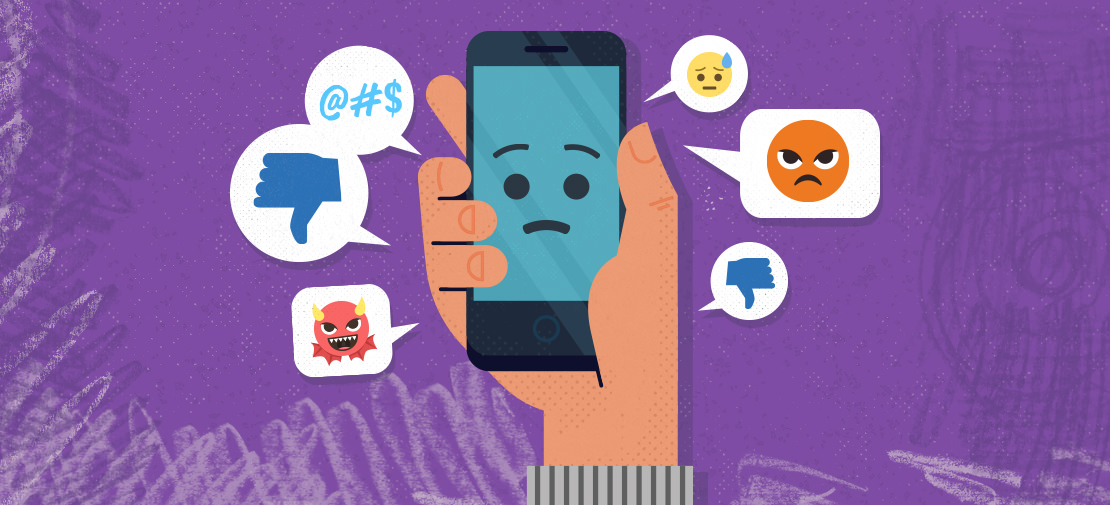

Cyber bullying

Cyber bullying can be through mobile phones, social media and other places online.
Cyber bullying can feel overwhelming. You feel like you’re
never going to get away from it. It can happen anywhere, at any
time, 24 hours a day, seven days a week, and you might not know who
the bully is.
Cyber bullying on a mobile phone can be:
- Sending insulting and threatening texts.
- Text bombing –where a lot of people send abusive messages all at once.
- Sexual harassment using texts.
- Being pressured to send private pictures or ‘sexting’.
- Someone sending your private pictures to other people without your permission.
- Silent calls – someone calls but doesn’t speak, although you know they’re there on the other end of the line.
- Abusive voice messages.
Cyber bullying online and through social media can be:
- Abusive posting - making fun of you or putting you down on Instagram, Snapchat, Facebook or other social media channels.
- Spreading rumours.
- Harassing you while you’re playing an online game.
- Posting pictures or videos to embarrass or humiliate you.
- Create an anonymous profile to bully you.
- Encouraging people to target you.
- Making a fake profile of you and stealing your identity.
Remember, cyber bullying is never okay, and there are people who can help you.
I think I’m being cyber bullied – what can I do?
How to stay safe on your mobile phone
- Tell someone you trust. The sooner you tell someone, the sooner it can be sorted out.
- Don’t reply, and block them. Never reply to a bully as tempting as it can be.
- Keep the messages as evidence. You may want to delete the messages because they’re so horrible, but don’t. They might be needed for evidence.
- Report it to the police. If the bullying includes threats to harm you, tell someone you trust who can help you contact the police. Making threats against another person is illegal. Remember to save the messages.
- Tell your mobile service provider, your website provider or Netsafe. If they have the evidence they can take action against the bully, such as closing their account.
- Change your SIM card.
How to stay safe on social media
- Privacy settings. Learn how to use the privacy settings on your phone or computer.
- Don’t accept friend requests from people you don’t know. If you don’t know the person, don’t friend them.
- Block people you don’t want to hear from. If someone is sending you messages you don’t like or want, you can block them.
- Report what’s happening. If someone keeps sending offensive posts when you’ve asked them not to, you can make a complaint using the report link. Most sites have some way for you to report bad behaviour.
Stand up to cyber bullying!
Don’t be afraid to stand up for yourself or someone else who is being bullied this way. The bullying can usually be stopped pretty quickly when people speak up.
- Talk about it. Being vocal about cyber bullying lets people know it’s not okay and reminds others how to treat people online.
- Support others who have been targeted. Look out for your mates and others online– cyber bullies are less likely to target people who are well supported. You could tell the person who is doing the bullying to back off, or you could message the person being bullied to support them.

Charities Commission number: CC21844 - Registration details on the Charities Commission Website


